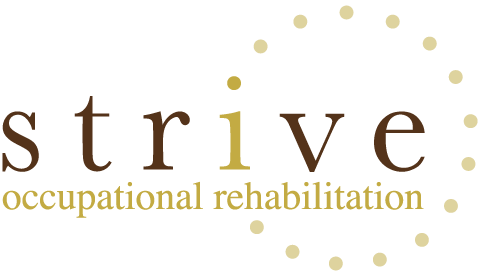By Elle Balchin, Rehabilitation Consultant – OT
In Brene Browns’ book Dare to Lead, she states that businesses and companies often pay a lot of lip service to “bringing your whole self to work” – yet, organisations that allow employees to do so are few and far between. The slogan is easy, the behaviours to support the slogan are not.
Thinking about your own organisation – is it one that encourages emotion and courage? Or is it one who rewards behaviours like perfectionism, stoicism, and over-working?
Often leaders try to remove emotion from the workplace, in an attempt to make employees more productive/ efficient/ easier to manage. However, in doing so, they can stifle the potential for creativity, innovation and connection. Brene Brown suggests that by integrating our thoughts, feelings and behaviours (being our whole, authentic selves), we have better capacity for decision making, critical thinking, empathy and resilience.
Actionable ways to support employees to bring their “whole selves” to work:
- Provide space for imperfection, curiosity, and learning.
Perfectionism is the ultimate killer of creativity. When people are terrified of making mistakes or being wrong, they’re never going to come forth with fresh ideas, questions or to admit when they need help. Create an environment where staff are empowered to have the to ask questions and make suggestions – make time for questions or putting forth ideas in the staff meeting, genuinely ask employees to give feedback when rolling out changes, be available when people need assistance. Be mindful make a genuine acknowledgement when people do bring things forward, so there’s a consistent positive feedback loop fostering creativity and vulnerability. - Take accountability.
It’s easy to point fingers and throw around blame when things go wrong, it’s much more difficult (and courageous) to take accountability for your part in things and learning from experience. When staff see people in leadership showing up in this way, it encourages the same from them. You can’t be, what you can’t see. - Having the hard conversations.
The difficult and awkward conversations are the most necessary ones for growth. Often we avoid having the uncomfortable conversations to avoid discomfort, instead opting for the path of least resistance (which almost always leads to people not feeling heard or further deepening of conflicts in the workplace). One of the most important ways for managers to show vulnerability to staff is to show and have the tough conversations, even if it’s uncomfortable. Practice saying: “I know this is hard to talk about, and I am having trouble with it myself. Let’s work through this together.”
#StriveToBeMindful

 Strive’s Mindfulness Program
Strive’s Mindfulness Program